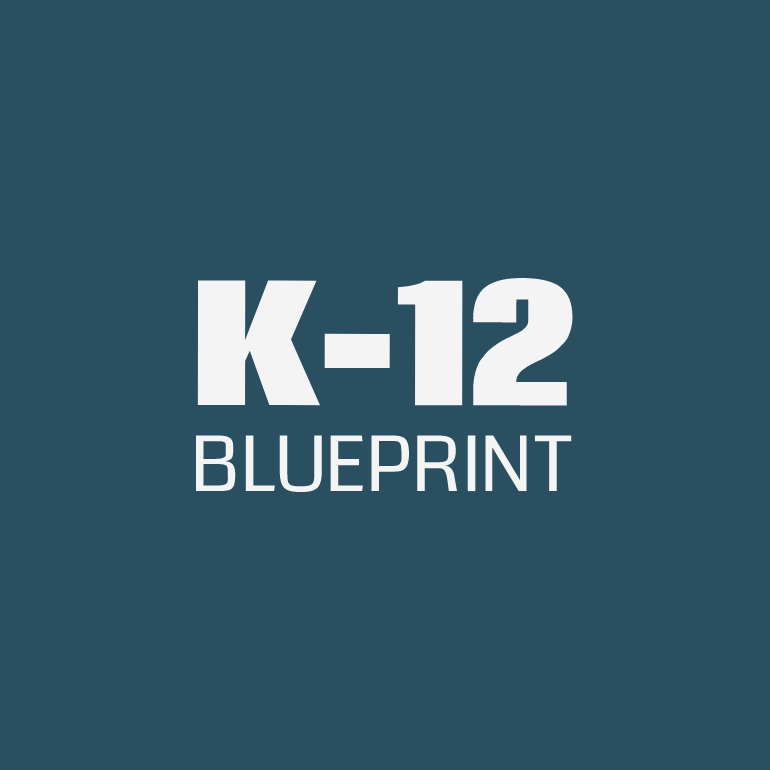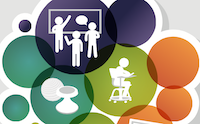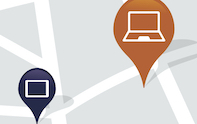Digital Equity
Everyone deserves access to broadband technologies and the right digital skills to participate fully in our society, democracy, and economy. The K-12 Blueprint Digital Equity toolkit - developed with generous support from CDW-G* - includes resources and materials to help school leaders make equitable decisions to ensure the greatest access for all students.

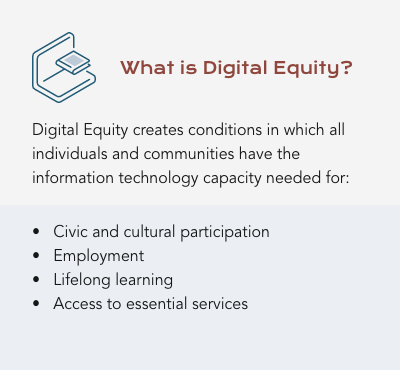
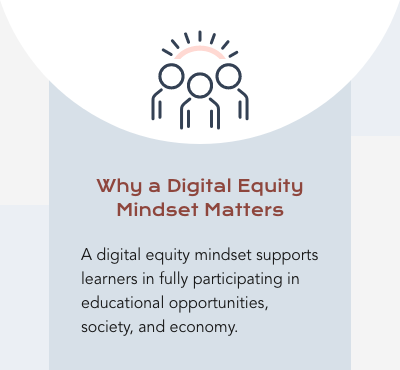
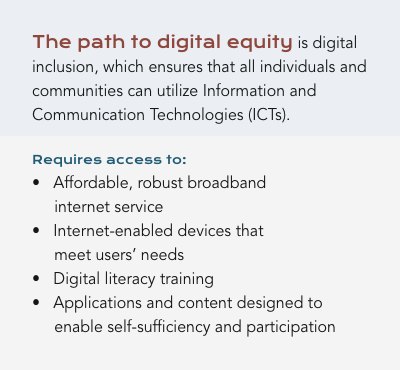
 |
News Enhancing K–12 Math Instruction with Generative AIModern educators are tasked with developing learning materials and supplemental resources on-demand, and must adapt this content to address each student’s unique abilities or interests. |
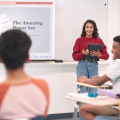 |
News Making Accessibility More Accessible for AllEnsuring that content is accessible to all with tools like Microsoft's Accessibility Checker can be the difference between engaging all learners or excluding people from the learning process. |
 |
News Accelerating Learning with Workplace Math SkillsTools such as Math Assistant in OneNote for Education can make a difference in the effort to close the opportunity gap and accelerate learning for all. |
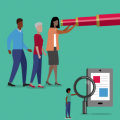 |
News The Technology Sustainability ToolkitThe Technology Sustainability Toolkit is designed to provide digestible bits of information for consideration as districts move through their planning processes. |
 |
News Digital Learning and Instruction Tools from the Yale Poorvu Center for Teaching and LearningThe Yale Poorvu Center for Teaching and Learning provides examples, recommendations, and links to effective uses of digital resources. |
 |
News The Utah State Board of Education Moves Instruction with Personalized, Competency-Based Learning (PCBL)The Utah State Board of Education is continuing the innovation for PCBL with the release of Utah’s PCBL Framework and continuation of the PCBL Grant Programs. |
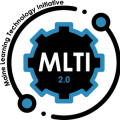 |
News The Maine Learning Technology Initiative 2.0The Maine Learning Technology Initiative 2.0—a program within Maine DOE’s Office of Innovation— delivers a state-level holistic technology program to schools. |
 |
News New Mexico’s Four-Part Strategy to Remedy Identified DeficienciesThe New Mexico Public Education Department will be pursuing a four-part strategy that will create an effective and equitable system of supports for all students. |
 |
News Acceleration Roadmap for MassachusettsThe State of Massachusetts has created the Acceleration Roadmap to help provide a focused and phased approach to supporting student learning moving forward. |
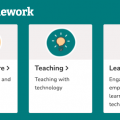 |
News CITES Framework Development ProcessThe Center for Inclusive Technology in Education Systems (CITES) has refined a set of practices into a framework, based on current research and understanding gained from the project’s Knowledge Development Districts. |
